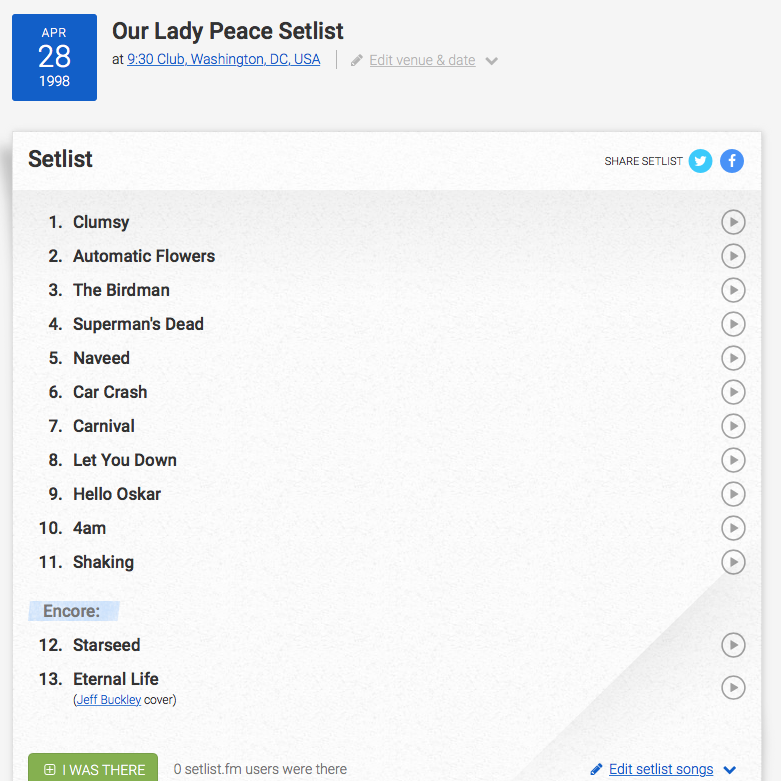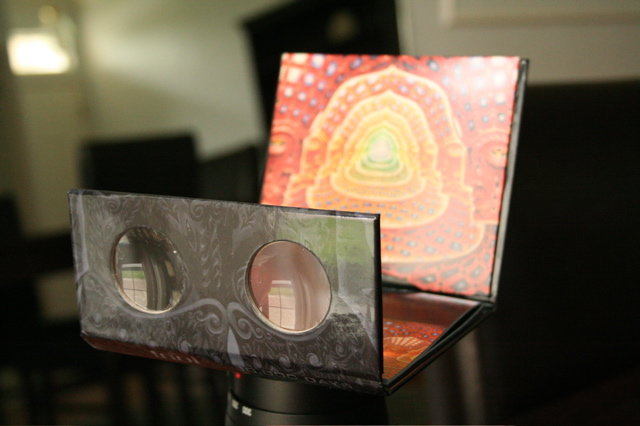When I was in 5th or 6th grade – I don’t remember exactly and I’m terrible with matching time periods and events – no doubt a by product of indulgences I would undertake many years later – I managed to save up one hundred of my very own dollars to go down to the Dart Drug and buy a Panasonic boom box.
This is significant in two ways: one, because if you knew me then – or now, really – you’d know that I’m terrible at saving money; two, because it would form the basis for the lifelong relationship with music I’ve had to this day.
At the time one of my favorite pastimes was to create ‘mix tapes’ – though, not in the fancy way you’re thinking of in the later years of double cassette decks and CDs. This was old school record-the-song-live-from-the-radio mix tape production.
For the uninitiated, this meant when you were hanging out in your room, or doing homework or whatever, if a song came on you liked (or you were lucky enough to have the DJ announce it was coming up) you would FLY across your room – often banging some sort of body part on errant furniture – to get to the radio and hit the magic ‘record/play’ mash of buttons to record the song and capture it on your mixtape forever.
It was never perfect. Often times you’d end up catching the song 10 seconds in. It wasn’t uncommon to get the DJ talking over the beginning or end of your song. There was no ‘fade’. Your song transitions were abrupt, and often would feature a snippet of the previous/following song – which there was a good chance you hated.
But, bottom line, if you could capture it, you had it.
Often times, on weekends, when I knew the Top 40 show was gonna be on, I would sit, right in front of the boom box, and wait, like a hunter waits for the game. This was a good technique as usually, the songs were announced beforehand, but unfortunately the DJ almost always talked over the beginning and end of the tune. There was also the seemingly unending downtime of sitting through songs you couldn’t care less about hoping the next one was a keeper.
The upside however, is that the painstaking process it was has music and many of those songs ingrained in the fiber of my being, and many of those songs to this day are with me on a cellular level, regardless of the fact that I may have never owned the record they were released on. Judas Priest’s ‘You’ve Got Another Thing Coming’ is a perfect example. Every time I hear it, I am transported back to the time I was able to catch it on tape. I still don’t own a Priest album. Never have. Never really listened to any other tunes, but that one – maaaaan, it comes on the radio (or even Muzak somewhere, FFS) and it’s ON.
At the time, amongst your peers, those songs were prizes and status symbols. It was the true origins of street cred as you knew you’d glean some juice from your friends if you were hanging out and they commented on or were envious of the contents of your mix tape.
I wonder how kids of these generations will reflect on their time with music. Will it be as wistful and nostalgic? I’m sure they relate and form experiences with music, but I have a feeling it will be considerably different. As a father of 4, I’ve already been able to observe live case studies in the wild.
With advent of Apple Music, Spotify, YouTube and the myriad of other services – free and premium – that are out there, and an industry and artists who for a variety of reasons discussed at length on the internet, pretty much have to give their music away at this point to remain viable – these generations of music fans have never really had to *work* for their music. I have to admit to being an enabler in this capacity. Apple Music’s family subscription is only a couple of bucks a month more than an individual one (damn you Eddy Cue) so I sprung for it, partly (perhaps foolishly, only time will tell) thinking that sharing music would be a way to connect/bond with my kids. Still though, there’s no time or effort invested. Everything is on-demand.
When I was able to actually buy albums I spent hours pouring over liner notes – lyrics, artist comments, who played what instruments on what song, where it was recorded, who did the artwork. I paid attention to these things and could weave connecting threads between artists. “Oh, that dude also did the artwork for so-and-so’s record.” “Oh, he recorded this at The Record Plant in NYC, so did so-and-so.” I became a fan of not just the music and the musicians but other ‘artists-at-large’ – visual artists, producers, engineers, and created meccas-in-my-mind of the studios/spaces they recorded in. Indeed throughout my life I have often followed the careers of these individuals and who they’ve worked with as much as the musicians that initially brought them to my attention.
Liner notes of today are – with a few exceptions – artist websites and social media feeds. Exclusive videos, ‘album trailers’ and sneak peeks. Access and news from/about artists has never been easier to glean, yet it doesn’t feel the same to me without something tangible.
I also sense these generations of music fans have little concept of the music as a created artwork and that the artist(s) should in some way be compensated for that. I think they have a disconnect between what they want to consume/experience and the livelihood of those making it.
While listening to the radio in the truck the other day (yea, I still listen to the radio in the truck), Heart’s ‘Crazy on You’ came on. Now, I will ashamedly or unashamedly admit to owning several Heart records – and even seeing them in concert – depending on the circumstance, but I never owned an album with this song on it. Still, to this day, it comes on the radio, I know all the breaks, all the lyrics, can air guitar the solos and drum fills. Then I wondered, “How the hell is it that I know this song inside out? How is it that after all these years* I have forgotten so much other crap, yet I have this, perfectly preserved in the vault of my consciousness?” I mean, I still mix up which years my kids were born.
The more I think about it now, maybe this and coming generations of music listeners will have a deep, if not deeper, connection with their music if only for the fact that, really, no one has to listen to music they don’t like anymore. The ability to dial up exactly what you want, when you want it, means you can – in essence – ‘Clockwork Orange’ these songs into your mind to the extent there’s no way they’ll escape. The flip side of that though, is if you don’t have to wade through stuff you don’t like, work or pay for the music, does it lose it’s special value and significance and simply become ‘what is’? Is it then ‘nothing special’?
Shunryu Suzuki writes in Zen Mind, Beginner’s Mind :
“As Chinese poem says, “There is nothing special. If you visit there, there is nothing special. However Rosan is famous for its misty mountains, and Sekko is famous for its water.” This is Zen. There is nothing special. If you go there, there is nothing special. But people think Rosan is wonderful. It is wonderful to see the range of mountains covered by mist; to see the misty mountains in Rosan is wonderful. And people say it is wonderful to see the water covers all the earth. It is wonderful, they may say, but if you go there, you see just water, and you see just mountain. There is nothing special. But it is a kind of mystery that for the people who have no experience of enlightenment, enlightenment is something wonderful; but if they attain it, that is nothing. Although it is nothing, it is not nothing. Do you understand? For some person — for the mother who has children, to have children is nothing — nothing special. But if she lose her children, what will she feel?”
If this and coming generations have unlimited access to music (and/or art) without any sort of effort to attain it, does it become “nothing special” within the context of their greater experience?
* “Crazy on You” was the first single following the release of their debut album Dreamboat Annie, released in 1976 – and there’s no way I heard it then. I’m guessing it was probably 2-3 years before I heard it and no doubt it’s heavy rotation on ‘classic rock’ radio, which I favored in high school, has been the major contributor to it’s etching on my musical psyche.


